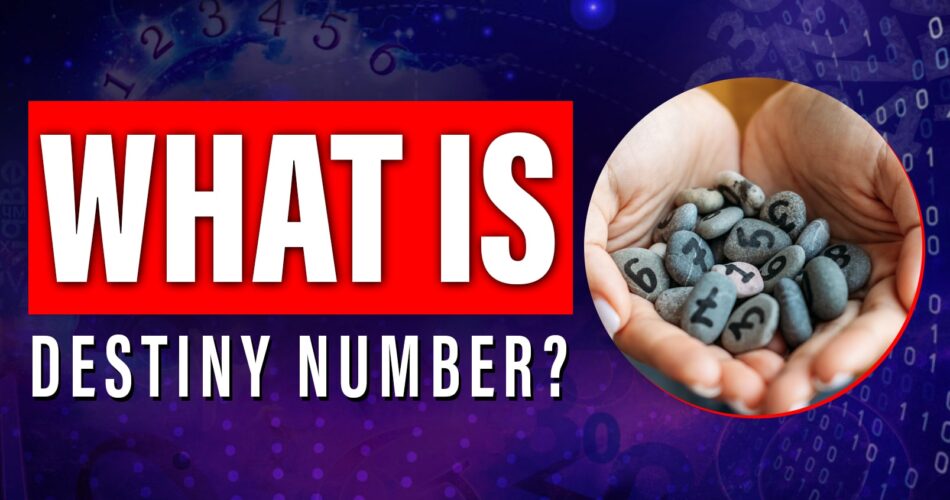What is the destiny number in numerology?
In numerology, a destiny number is a number that is calculated based on a person’s full birth date. It is believed to reveal a person’s potential and path in life, and to indicate the opportunities and challenges they may encounter.
To calculate your destiny number, you can use the following steps:
- Write down your full birth date in the format of month, day, and year. For example, if you were born on July 15, 1990, your birth date would be 07/15/1990.
- Reduce each component of your birth date to a single digit. You can do this by adding the digits together until you are left with a single digit. For example, for the month of July (07), you would add 0 + 7 to get 7. For the day of the month (15), you would add 1 + 5 to get 6. And for the year (1990), you would add 1 + 9 + 9 + 0 to get 19, then add 1 + 9 to get 10, and finally add 1 + 0 to get 1.
- Add the three single digits together to get your destiny number. In this example, you would add 7 + 6 + 1 to get 14.
- If your destiny number is a two-digit number, add the digits together to reduce it to a single digit. In this example, you would add 1 + 4 to get 5.
Your destiny number is the final single digit you obtained, in this case, 5.
It’s important to note that this method of calculating your destiny number is based on numerology, which is a system of divination that uses numbers to gain insight into a person’s personality and predict their future. It is not a scientifically recognized method of personality assessment.
How To Calculate Destiny number in numerology?
To calculate your destiny number in numerology, you can use the following steps:
- Write down your full birth date in the format of month, day, and year. For example, if you were born on July 15, 1990, your birth date would be 07/15/1990.
- Reduce each component of your birth date to a single digit. You can do this by adding the digits together until you are left with a single digit. For example, for the month of July (07), you would add 0 + 7 to get 7. For the day of the month (15), you would add 1 + 5 to get 6. And for the year (1990), you would add 1 + 9 + 9 + 0 to get 19, then add 1 + 9 to get 10, and finally add 1 + 0 to get 1.
- Add the three single digits together to get your destiny number. In this example, you would add 7 + 6 + 1 to get 14.
- If your destiny number is a two-digit number, add the digits together to reduce it to a single digit. In this example, you would add 1 + 4 to get 5.
Your destiny number is the final single digit you obtained, in this case 5.
It’s important to note that this method of calculating your destiny number is based on numerology, which is a system of divination that uses numbers to gain insight into a person’s personality and predict their future. It is not a scientifically recognized method of personality assessment.
Who should destiny number 1 marry?
It’s important to note that numerology is a system of divination that uses numbers to gain insight into a person’s personality and predict their future. It is not a scientifically recognized method of personality assessment, and there is no reliable evidence to support the idea that certain destiny numbers are compatible with one another.
In general, compatibility in a relationship depends on a wide range of factors, including personalities, values, goals, communication styles, and many other aspects of a person’s character. It is not helpful or appropriate to try to predict compatibility based on a single aspect of someone’s identity, such as their destiny number in numerology.
Rather than focusing on destiny numbers or other numerological concepts, it may be more productive to get to know a potential partner and determine whether you are compatible based on more reliable and objective measures. It can be helpful to communicate openly and honestly with your partner and to consider factors such as shared interests, values, and goals, as well as individual differences that may complement or enhance the relationship.

